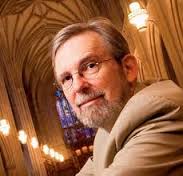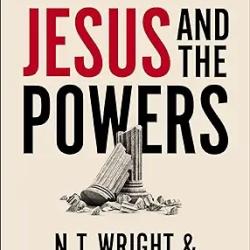Richard rightly stresses from the outset the importance of the Jesus Bible study for the bewildered disciples in Lk. 24, where, without explication it is said that the Law,Prophets, and Psalms all testify to Jesus. He intends to contest the notion that the Gospel of Luke represents a low Christology depicting Jesus as merely a Spirit inspired prophet, a teacher of wisdom, a righteous martyr. In other words, Luke is credited with depicting Jesus in the same manner the befuddled Emmaus Road disciples see him. (p. 57). He rightly finds this more than a little ironic. Hays stresses that rather than sort of just looking at the titles of Jesus in Luke, one has to look at the narrative presentation of his identity. Hays will stress that when you look carefully at Luke’s handling of the OT, you discover that like Matthew and Mark he also indicates that Jesus is the embodied presence of Israel’s Lord and God. (p. 58). Interestingly, in Luke the Scripture citations almost all are found in the mouths of the characters in the narrative, unlike Matthew’s methodology. “The story keeps moving and leaves us with a powerful but indistinct sense of analogy between God’s saving acts for Israel in the past, and the new liberating events coming to fulfillment in the story of Jesus.” (p. 59).
Pointing to the birth narrative, Hays stresses that Jesus comes into the world by supernatural means, and while John is to be the prophet of the Most High God, Jesus is depicted as his Son. Lk. 1.26-38 has the net effect of identifying Jesus with both Israel and Israel’s God. Notice in Lk. 22.28-30 how God’s kingdom is said to be Jesus’ kingdom in which he has the right to confer thrones on disciples. Son of God turns out to be more than a Messianic title, it also connotes the divine identity of Jesus, as the virginal conception story suggests. On p. 63 he stresses that one could read Is. 40 to refer to Yahweh, or to Jesus in the Lukan account so that there is an overlap or shared identity between Jesus the Lord, and the Lord of Israel who is coming. Luke then “in his own narration quite remarkably applies the title kurios both to the God of Israel and to Jesus of Nazareth– occasionally in a way that suggests a mysterious fusion of divine and human identity in the figure of Jesus.” (p. 65).
In a strong statement (p. 126) that Acts 2.36, and following his colleague Kavin Rowe, Richard denies this is an adoptionist statement, because Jesus has already been named as kurios from the beginning of the Gospel. Thus Acts. 2.36 is taken to be about the point at which Israel came to know that Jesus was Lord. I.E. its about epistemology not ontology. There are some issues with this conclusion: 1) Jesus only becomes the risen Lord as a result of the resurrection, and surely that is what Peter is talking about; 2) the formula in Rom. 1, whether primitive or Pauline also suggests a change happened as a result of the resurrection, he was appointed to be, and named to be the Lord at that juncture. This is not an ontological statement but about the assumption of a role; 3) most Lukan scholars would say that one has to distinguish between what the characters in the narrative call Jesus in Luke’s Gospel, and what Luke calls him in the narrative framework. In the latter Jesus is clearly called Lord, but in the former, he is not called Lord by any mere mortal, if by Lord one means something more than ‘revered sir’. This is doubtless good historiography, and Luke is a historian and acts like one. While I agree that Jesus is not becoming something he wasn’t before at the resurrection, he is nevertheless assuming a new role as risen Lord, a role he did not have before. So, Acts 2.36 is not just about the change in what Israel knows, though it involves that as well. Yes Jesus’ activities can be said to be God’s activities (see Lk. 8.39) but this is said at the same time that Jesus and God are distinguished in the same narrative as well. There is a reason why Luke reserves all the references to the worship of Jesus until the end of his Gospel where Jesus appears as the risen Lord (see p. 69). This is very different than Lk. 4.38 where Jesus quite explicitly says God alone should be worshipped, and the context does not suggest he means himself.
Despite these critiques, I do agree with Richard’s conclusions that Luke’s use of the OT makes perfectly clear that it is not enough to call Jesus martyr, prophet, teacher, and Luke has no issues with a high Christology that affirms that Jesus is part of the divine identity, in some not entirely delineated sense (p. 72).














